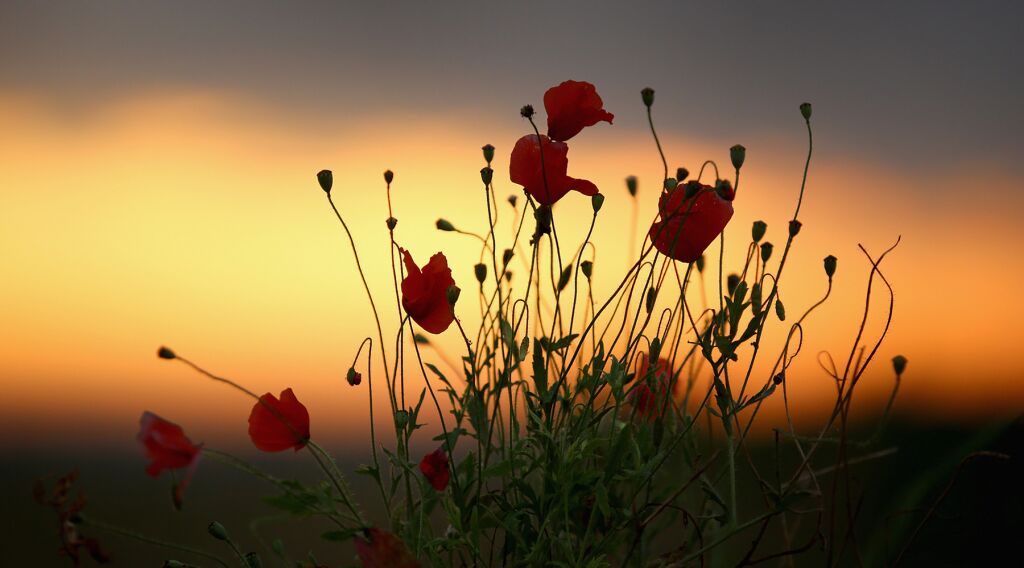
I Am German, Yet Today I Wear the Poppy
I am a proud German. Proud of the fact that Germany stands for efficiency, outstanding quality, an admired work ethic, friendliness and many other positive qualities. Again and again, however, I am reminded of Germany’s past violence. Though at times pressed to fight, Germany almost always sought the battle. But it was not just Germany that fought throughout the ages. Mankind’s history has always been one of war.
As I reflect on the battlegrounds of Europe and the blood that was spilled thereon, I set my eyes on a time when wars will be but ancient history.
People ask me: Why do you, a German, wear the poppy? Isn’t it a symbol worn by citizens of World War i’s Allies as a memorial of those who died fighting your people for the freedom of Europe?
It is true that Germany started a war that caused the death of millions. World War i turned hundreds of thousands of wives into widows, children into orphans, and fields into fruitless plains. Many today groan at the remembrance of the death of the millions who sacrificed their lives for a greater cause.
Poppies were the first thing that grew on the torn-up, blood-saturated battlefields of Belgium after the war laid them waste. They symbolized a beautiful new beginning after the close of one of the darkest chapters of human history. The poppy shows that, no matter how horrible the past was, life will continue. The last verse of the famous poem “In Flanders Fields” began the history of the poppy as a sign of remembrance:
Take up our quarrel with the foe:
To you from failing hands we throw
The torch; be yours to hold it high.
If ye break faith with us who die
We shall not sleep, though poppies grow
In Flanders fields.
The poem was written by a Canadian man who reflected on the sprouting of the poppies around the graves of his comrades and friends. Many who wear the poppy today had fathers and grandfathers who fought Germans or fell at their hands.
Am I proud of what Germany has done in recent history? Am I proud that Germany’s history is marked by constant war? No. I too mourn for the millions who died on those battlefields.
But Germany is not the sole cause of war. Ever since there have been nations, there has been war. Bloodshed has only increased as mankind has advanced and multiplied.
Yet today, the poppy is a symbol of remembrance and hope.
Just like the poppy that grew on the most ravaged battlefields, mankind’s hope grows as we face the greatest distress. As each war passes, mankind proves more and more how utterly incapable we are of finding solutions.
The world changed with the introduction of nuclear weapons. Man set his hope on deterrence. But humanity’s biggest challenge became survival, and now the world stands on the brink of another global war. But just as the desolate battlefields of World War i were not the end of mankind, the coming nuclear holocaust will not be either. From the ashes will bloom new life.
Mankind cannot provide the solution to our problems. We will finally be forced to see that we can’t govern ourselves. Humanity will realize that no war can end war, that no man is great enough to bring peace, that no human advancement will ensure prosperity. The greatest suffering of all time will cause man to see that only God can bring forth life in a dying world.
Just like the poppy blossomed on the battlefields of Belgium, the whole world will soon blossom in a new beginning.
In Isaiah 35:4, God tells us: “Be strong, fear not: behold your God will come ….” He promises in verse 10 that “sorrow and sighing will flee away”—that “the wilderness and the solitary place shall be glad … and the desert shall rejoice, and blossom as the rose” (verse 1).
The poppies on the battlefields of World War i are just a foretaste of the coming renewal of the Earth.
I wear the poppy today because I remember mankind’s history of war. I remember the bloodshed that was committed by my people and millions of other men, and I look forward to the day when all war will cease and happiness will abound. I wait for a time when mankind will cease to know how to make war—for a time when my people and the rest of the world will live peaceably together. If you want to know more about that amazing future and your part in it, request our free booklet Isaiah’s End-Time Vision.
